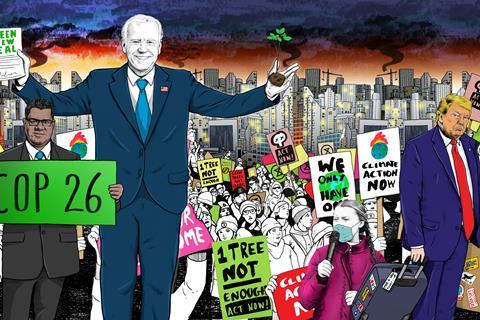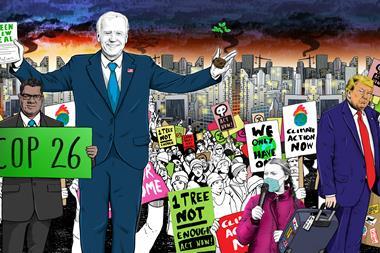As the Property Week/UKGBC Climate Crisis Challenge enters its second year, the climate movement is at a crossroads. Following a 2020 defined by a global pandemic and the worst economic recession on record, this needs to be a year of action to back up last year’s rhetoric of a green recovery.

So, is the property industry ready to walk the walk when it comes to tackling the climate crisis?
This is what our second Climate Crisis Perceptions Survey aims to discover. We are eager to hear how individuals and businesses across the real estate industry are rising to the climate crisis challenge and how much progress has been made since last year.
The results of last year’s survey showed the property sector is convinced the climate crisis is a serious problem; 92% of respondents said tackling the climate crisis mattered to them personally, while 91% agreed the government should impose higher environmental standards across the building cycle.
Complete the 2021 Climate Crisis Perceptions Survey here, or below:
But the survey also showed that the industry had a long way to go in terms of tangible action; only 47% of respondents felt equipped to tackle the crisis and 40% did not think or know whether they had a business strategy to tackle it.
Elfrida Hamilton-Russell, head of learning and leadership at UKGBC, hopes that this year, “respondents feel more equipped to tackle the climate crisis – closing the gap in perception between what needs to be done, and what is being done. This is key, as we move from awareness to action that will move the dial on the climate crisis.”
Alastair Mant, head of business transformation at UKGBC, is confident that more businesses will have taken action. “Judging by the activity we witnessed over the past year, I expect a slight increase in the proportion of businesses that have put in place a strategy for how they will tackle the climate crisis, although many have yet to do this,” he says.

Claudine Blamey, head of sustainability and digital strategy at Argent, one of our lead partners in the challenge, agrees. “We have seen more and more organisations commit to net zero carbon roadmaps,” she says. “Investor pressure to drive transparency on the risk of climate change for assets has grown even in the past 12 months.”
David Jackson, head of the ESG group at lead challenge partner Savills, also expects the survey to show an increase in commitments to action from businesses. “As a sector, we have undergone a huge process of education in relation to climate change, so that there is a greater understanding of the issue. Now the focus more than ever is on the solutions available to us,” he says.
Omega Poole, partner at fellow lead partner Mishcon De Reya, says the key difference between this year and last year is that Covid-19 “has helped to reset our priorities in terms of how we live, work and socialise within our built environment, emphasising our reliance on green spaces and accelerating our move towards a more flexible, adaptable and sustainable use of our buildings. In essence, it has shown us a business case for sustainability.”
That business case for sustainability could well be what makes this year’s results different to last year’s. The hope is that it will also reveal more evidence of tangible action across the industry – or at least commitment to it.
Complete the 2021 Climate Crisis Perceptions Survey here:
Follow on social using the hashtag #pwclimate































No comments yet